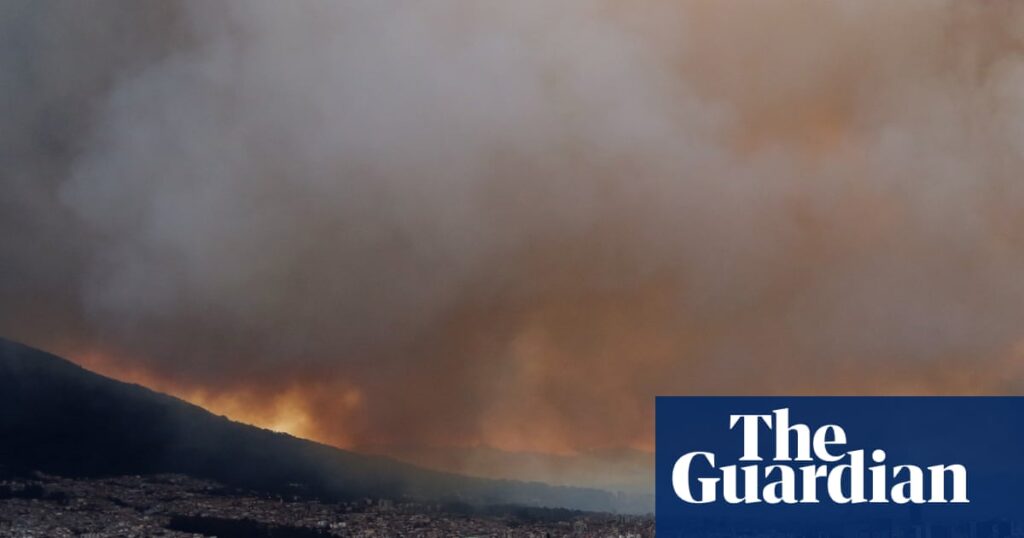
In a groundbreaking decision, the Inter-American Court of Human Rights (IACHR) has declared that there is a human right to a stable climate, imposing a duty on states to protect it. The announcement, made on Thursday by Nancy Hernández López, president of the IACHR, highlights the “extraordinary risks” posed by climate change, particularly affecting vulnerable populations.
The court’s advisory opinion, a comprehensive 300-page document, outlines the legal obligations of states to safeguard current and future generations from the impacts of climate change. This includes taking “urgent and effective” measures to reduce greenhouse gas emissions, adapt to climate changes, engage in international cooperation, and combat climate misinformation.
Context and Background
The inquiry leading to this decision was initiated by Colombia and Chile in 2023, seeking clarity on the legal responsibilities of states in addressing climate change and preventing human rights violations. The Costa Rica-based court gathered extensive input through submissions and hearings held in Barbados and Brazilian cities such as Brasília and Manaus.
Participants in the hearings included a diverse array of states, regional bodies, academic experts, civil society groups, and individuals directly impacted by climate change. López emphasized the urgency of the situation, stating, “The evidence we have seen and received during the hearing and written submissions shows that there is no margin for indifference.”
Legal Implications and Obligations
The IACHR’s opinion interprets the American Convention on Human Rights, ratified by members of the Organization of American States (OAS), and extends its findings to all 35 OAS members, including the US and Canada. For the first time, the court has affirmed that the right to a healthy environment encompasses the right to a stable climate.
This ruling mandates that states regulate emissions from both public and private sectors. Businesses, particularly those with significant greenhouse gas emissions, such as fossil fuel companies, cement manufacturers, and agro-industries, bear a specific responsibility due to the risks their activities pose.
“Success depends on all of us.” — Nancy Hernández López, President of the IACHR
Expert Opinions and Industry Impact
Marcella Ribeiro, a senior attorney with the Asociación Interamericana para la Defensa del Ambiente (Aida), views this as an opportunity for structural transformation. “This is not just about the shift from fossil fuels to renewable energy,” Ribeiro stated. “This is an opportunity for a structural transformation that will correct historical inequality and protect people and ecosystems.”
The court also emphasized the rights of nature, obligating states to restore ecosystems damaged by climate change. Luisa Gómez, a senior attorney for the Center for International Environmental Law, praised the court for linking the climate crisis with the rights of people and ecosystems. “It sends a clear message that impunity in climate matters can no longer be tolerated,” Gómez said.
Global and Historical Perspectives
The IACHR is the second of four top courts to issue an advisory opinion on climate change. The International Tribunal for the Law of the Sea previously concluded that greenhouse gases are pollutants harming the marine environment, imposing a legal duty on states to control them. The International Court of Justice is expected to release its opinion soon, while the African Court on Human and People’s Rights has just begun its process.
“These documents are technically nonbinding but are considered authoritative because they summarize existing law.” — Viviana Krsticevic, Executive Director of the Centre for Justice and International Law
Future Implications and Next Steps
Although the advisory opinions are nonbinding, they are regarded as authoritative interpretations of existing law and are anticipated to influence future litigation and political negotiations. Viviana Krsticevic, executive director of the Centre for Justice and International Law, described the IACHR’s opinion as a “very rich roadmap” for addressing the climate emergency, setting standards for national climate strategies that could be pivotal at the upcoming Cop30 in Brazil.
This landmark ruling underscores a growing recognition of the intersection between human rights and environmental protection, setting a precedent that could shape global climate policy in the years to come.





